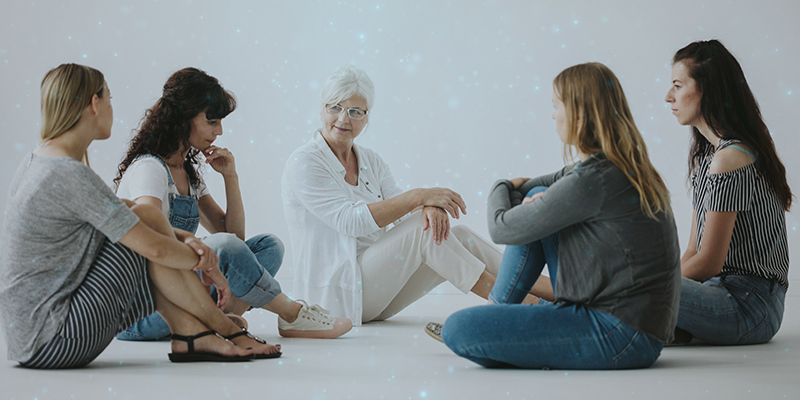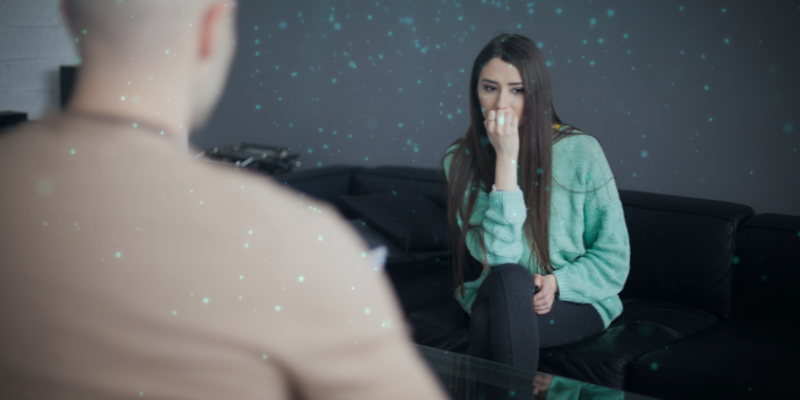
When the anti-anxiety medications benzodiazepines hit the market in the mid-20th century, they earned the nickname, “mommy’s little helper.” The Rolling Stones even wrote a song entitled “Mother’s Little Helper” in 1966 that included these lyrics:
Mother needs something today to calm her down
And though she’s not really ill, there’s a little yellow pill
She goes running for the shelter of her mother’s little helper
And it helps her on her way, gets her through her busy day
The song made reference to a little yellow pill, Valium, which remains one of the most commonly prescribed brands of benzodiazepines. Other widely used brands include Xanax, Ativan, and Klonopin.
But research shows that “mommy’s little helper” can steal mommy’s mind.
Scientists have long known that long-term use of benzodiazepines for the treatment of anxiety disorders or panic disorder can increase the risk of cognitive impairment or dementia later in life. A 2022 study in Nature Neuroscience provides new insights into how these drugs impact brain function, and it’s frightening. According to the researchers, benzodiazepines damage microglial cells, which then interfere with the synaptic connections that allow parts of the brain to communicate with other regions. When communication is disrupted, cognitive decline can occur.
Research shows that “mommy’s little helper” can steal mommy’s mind. Anti-anxiety medications can increase the risk of cognitive impairment or dementia later in life. Click To TweetINCREASED USE OF ANTI-ANXIETY PILLS
This is extremely disturbing considering the increased use of such drugs. An estimated 66 million doctor appointments annually result in prescriptions for benzodiazepines, according to a report from the U.S. Department of Health and Human Services. This means that for every 100 adults who go to a doctor’s office visit, 27 will leave with a prescription for a benzodiazepine. Those numbers are getting even higher. A report released in 2020 pointed to a 34% increase in the number of anti-anxiety medication prescriptions filled during the pandemic. An even higher number, 38%, represented new prescriptions filled for benzodiazepines. This could signal a rising tsunami of dementia in the future.
CONSEQUENCES OF USING ANTI-ANXIETY MEDICATIONS
When you have anxiety or a panic attack, it can make you feel awful—nervous, fearful, jittery, breathless, and out of control. It’s no wonder people want fast relief and turn to quick fixes like benzodiazepines that can be prescribed by a primary care physician in a brief office visit. But the short-term benefits of anti-anxiety medications come with serious long-term consequences.
- Damage to brain function: The brain SPECT imaging used at Amen Clinics shows the negative impacts of anti-anxiety medications on the brain. SPECT is a nuclear medicine study that measures blood flow and activity in the brain. Basically, it shows 3 things: areas with healthy activity, too much activity, or too little activity. As far back as 1991, when Dr. Amen first began using SPECT imaging in clinical psychiatric practice, it became clear that benzodiazepines decrease brain activity and have a toxic effect on the brain. Toxic brains look shriveled or have a scalloped effect, which is an indicator of low activity. According to the 2022 study mentioned earlier, benzodiazepines also interfere with the brain’s ability to communicate effectively.
- Dependence and addiction: For many people, it can be difficult to stop taking anti-anxiety medications. In some people, it can lead to physical dependence or addiction. Be careful not to start taking medication that is hard to stop.
- Memory loss and dementia: As mentioned earlier, taking anxiety pills over a long period of time raises the risk of cognitive decline. According to a 2019 analysis of 10 studies, long-term use of benzodiazepines raised the likelihood of developing dementia by more than 50%.
- Accidental overdose: Taking benzodiazepines in addition to drinking alcohol or using sleep aids can result in an overdose that can be fatal in some instances.
- Suicidal behavior: Research shows that taking benzodiazepines is associated with an increased risk of suicide attempts and death by suicide.
5 NATURAL WAYS TO SOOTHE ANXIETY WITHOUT PRESCRIPTION DRUGS
For all of these reasons, it is recommended to try alternatives to anti-anxiety pills whenever possible. Here are 5 strategies to soothe anxiety naturally.
Note: If you’ve taken benzodiazepines for a long time, don’t stop taking them abruptly as this can heighten anxiety. Work with a physician to gradually taper off the drug as you try these other techniques.
1. Practice meditation, prayer, or self-hypnosis.
Research shows that all 3 of these techniques can help calm stress and anxiety. Check out 3 simple meditations to calm anxiety and discover more about how self-hypnosis can help. If you respond to prayer, recite your most comforting favorites or read Bible verses that calm your anxiety.
2. Do deep breathing.
Deep belly breathing can soothe anxiety, and it does it quickly. It can even help with panic attacks. Here’s how you do it: Take a deep breath in for 4 seconds, hold it for 1 second, then exhale for 8 seconds, and hold it again for 1 second. Repeat this 10 times, and it will induce relaxation. Watch Dr. Amen’s video on how to break a panic attack in 2 minutes where he demonstrates this breathing technique.
3. Learn to manage your mind.
Anxiety is often associated with anxious and fearful thoughts that make you feel bad. These automatic negative thoughts (ANTs) infest your mind and fuel anxiety. You can learn to gain control of your mind and eliminate the ANTs. Any time you feel sad, mad, nervous, or out of control, write down what you’re thinking. This helps get the ANT out of your mind. Then talk back to your ANTs and ask yourself if they are true. Chances are, many of your most worrisome thoughts are not true at all.
4. Try soothing activities.
Proven ways to decrease anxiety and stress include yoga, tai chi, and qigong. Make them part of your daily anti-anxiety practice. A 2017 EEG study that looked at brainwaves, concluded that qigong promotes a relaxed state.
5. Take calming nutritional supplements.
A number of nutraceuticals—such as GABA, l-theanine, and magnesium—have strong scientific evidence that they can be beneficial for anxiousness or stress.
Anxiety disorders, panic attacks, and other mental health issues can’t wait. At Amen Clinics, we’re here for you. We offer in-clinic brain scanning and appointments, as well as mental telehealth, clinical evaluations, and therapy for adults, teens, children, and couples. Find out more by speaking to a specialist today at 888-288-9834 or visit our contact page here.





Is there a way to reverse the brain damage? What is considered chronic use? Is once or twice a week at .5mg considered chronic?
Comment by Sarah — February 9, 2023 @ 9:24 AM
Which type of magnesium do you suggest? I know there are several with different benefits…
Comment by Mar — February 9, 2023 @ 12:31 PM
Hello Mar, thank you for reaching out. For more information about Dr. Daniel Amen's recommended, brain-directed supplements visit https://brainmd.com/. Here's a link to more information about Magnesium Chewables: https://brainmd.com/magnesium-chewables.
Comment by Amen Clinics — February 10, 2023 @ 10:22 AM
Uhh, someone here asked , WHAT IS CONSIDERED TO BE CHRONIC USE OF THE BENZOS?? Could someone please answer this? It does NOT say in the article for how long, how many mgs, NOT enough info.
Comment by Monica — May 9, 2023 @ 3:17 PM
Are SSRI’s just as problematic as benzodiazepines with regard to brain affects – linked to increased risk for dementia?
Comment by Sue — May 26, 2023 @ 11:40 AM
Here are all the warnings, but what can we do after we've been on these drugs for years and years? I hope Dr. Amen has a followup with real world solutions for carefully tapering off of and eliminating these drugs from our lives.
Comment by Cathy O'Connor — August 16, 2023 @ 11:11 AM